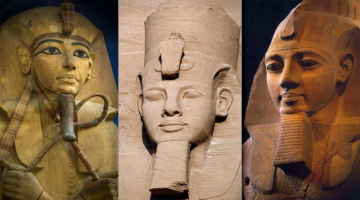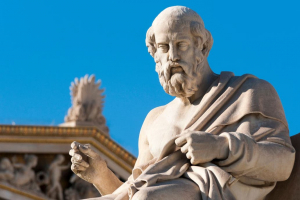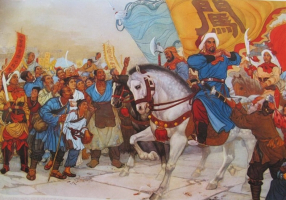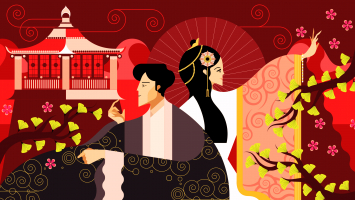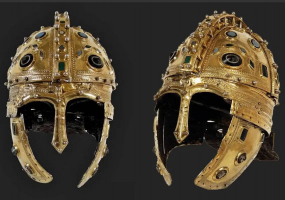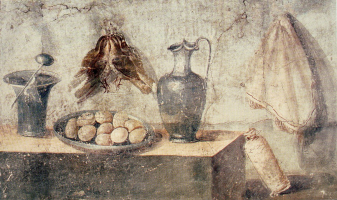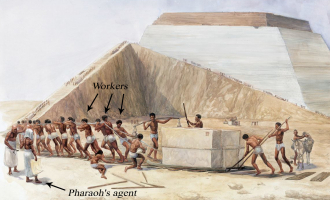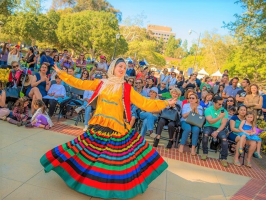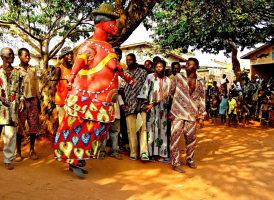Top 7 Most Famous People in Ancient China
China is known the world over for its deep history, unique culture, delicious food, and certainly the most famous people in ancient China - there have been ... read more...many influential and illustrious Chinese people over the years: emperors, politicians, and philosophers,... who helped create the world as generations know it today. China's success is due to its great people, who have made great strides in various industries.
-
Zhang Heng lived during the Han dynasty and was an expert in subjects such as astronomy, mathematics, hydraulics, and science, being one of the most famous people in ancient China. Zhang did not come from a royal family but he was taught Confucianism and, after self-education in various fields, he held the position of chief astronomer and later imperial palace guard. Despite the opportunity to work at a higher level, he refused to accept these positions, saying that he was not ambitious enough. In ancient times, famous astrologers like Zhang used to write calendars for kings. Calendars were intended to guide the emperor in the way in which he should rule, but they had little to do with the emperor's ruling strategies and were largely based on what astrologers wanted. Zhang's refusal to draw the Chinese calendar illegally for the government made him unusually popular.
Zhang Heng invented a water-powered sphere that was used to calculate altitude and longitude. He also theorized about the moon and its relationship to the sun. He studied the 3 × 3 magic square and found a number close to π. He stated that π is approximately the square root of 10 and is equivalent to 3.162. He deduced equations for the volumes of three-dimensional objects such as spheres and enclosing cubes. This level of math was unprecedented at the time. He also contributed to the literary field by writing many poems and stories, an interest he developed during his time at the imperial court because of his access to a wide range of books and major literary works.
- Born and died: 78–139 AD
- Known as: Scientist
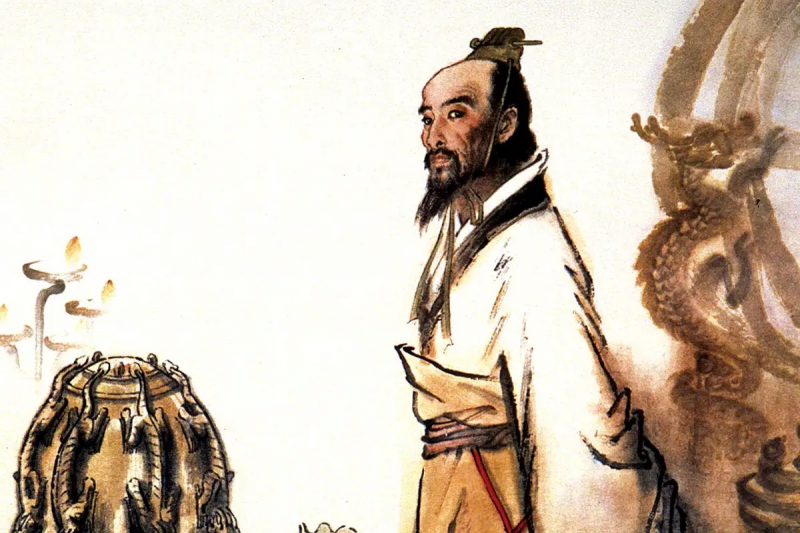
Source: newscientist.com 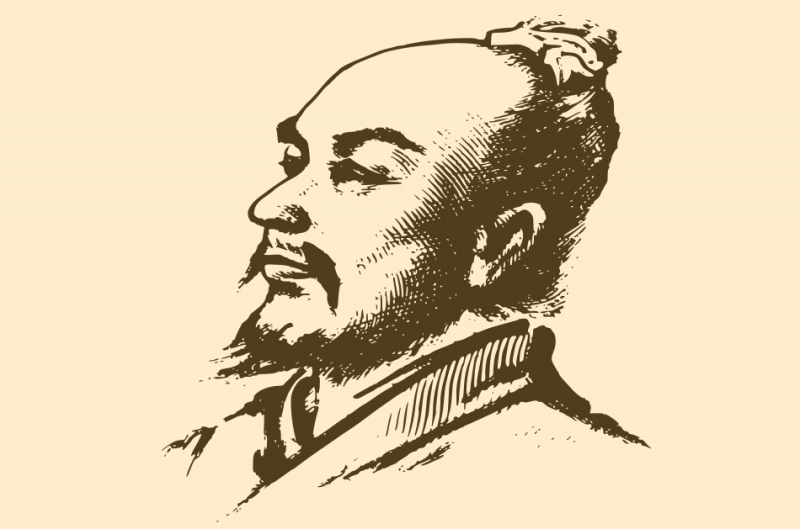
Source: nspirement.com -
Zu Chongzhi was the most famous person in ancient China known for his accuracy in calculations, knowledge of mathematics, and astronomy. He comes from an astronomical family, and this is probably where his interest started when his grandfather taught him all of his astronomy and math skills. His family served the king for many years, and astronomers played an essential role in the court because the king was said to have received orders from heaven. It is true that he lived to witness two governments, the Liu Song and Southern Qi dynasties. His grandfather used to be the Minister for the palace works. That's not all, his father, Zu Shuozhi worked in the imperial court and was highly respected.
Zu Chongzhi is intelligent and is appreciated for his intelligence. He concluded that the rational number 22/7 was greater than π and he used his mathematical skills to calculate astronomical possibilities. He was the first to introduce the Daming calendar, which laid out the activities the king had to achieve in that year. The calendar is very accurate and runs over a long period of time. He calculated the exact number of days in a year and could also tell the exact time of day. As can be seen, his inventions and knowledge have been passed down for thousands of generations, and are still applied today, bringing much praise and pride.
- Born and died: 429 – 500 AD
- Known as: Astronomer, mathematician, politician, inventor, and writer
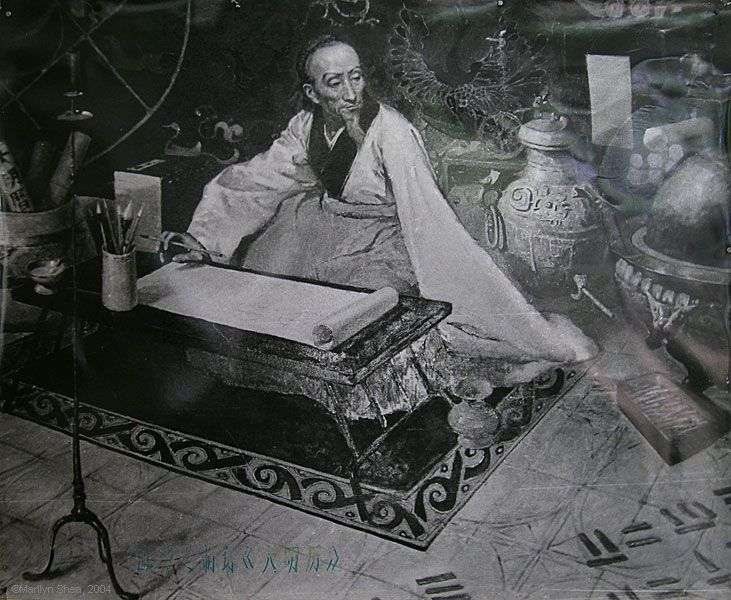
Source: thehistoryofchina.wordpress.com 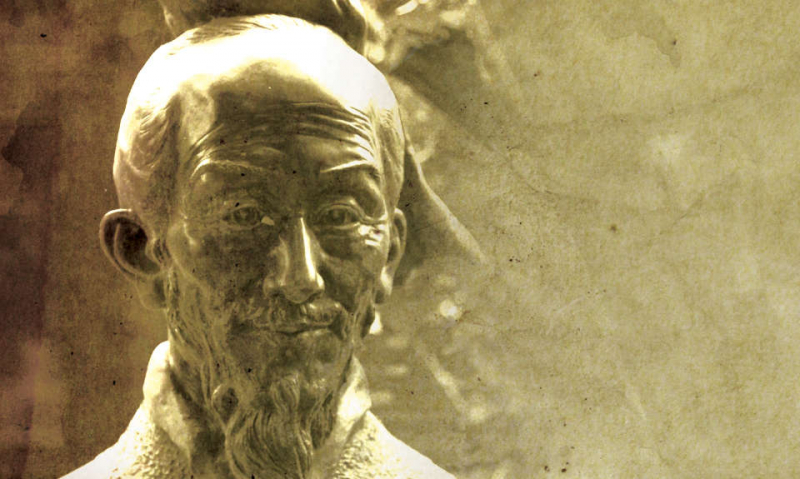
Source: thehistoryofchina.wordpress.com -
Gongsun Long was born in the state of Zhao, in present-day Hebei province, China. He is one of the most popular ambassadors of dialecticians. The dialecticians were actually a school of Philosophy of both the third and fourth centuries BC in China. Their devotees are really interested in making a proper judgment about the true or original meaning of words. He was a logician who spent his time writing several contradictory articles or articles. Take a look at the essays/articles, each containing approximately three hundred personalities but with their roots in them and they offer many meaningful life lessons. Given the fact that a very good number of his works have been lost or cannot be found, it limits our understanding of his achievements. Directly speaking, only six of his fourteen poems have been found. That's a little less than half. He is best known for his paradoxical speeches and essays, a popular article where he explains why "white horses are not horses".
Gongsun Long is a logician who has written many paradoxical essays. These essays are only about 300 characters each, but have deep meanings and bring many useful lessons. Despite being the most famous person in ancient China, little is known about his accomplishments as many of his documents have been lost, and only six of the fourteen poems have been found. One of his famous poems brought up the idea that a white horse was different from his clan and therefore not an ordinary horse. His poems offered no conclusion to the paradoxes he presented and were well received by many, but others were disappointed by them. Gongsun Long is hailed as the most sophisticated philosopher ever.
- Born and died: 320–250 BC
- Known as: Philosopher and writer
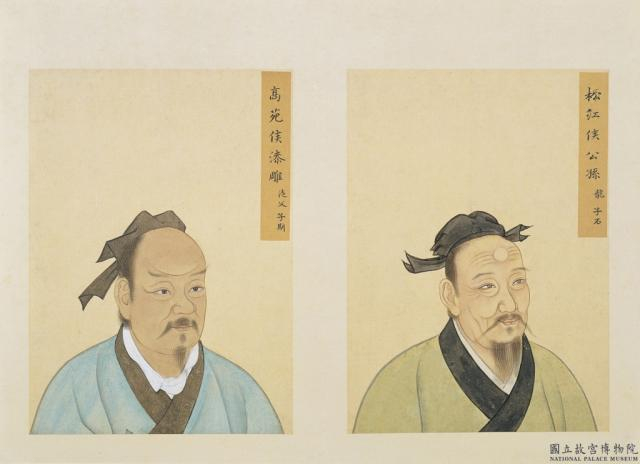
Source: ericgerlach.com Source: Youtube - A White Horse Is Not A Horse: Gongsun Long, Words & Logic -
Mozi was indeed a philosopher, in the age of the Hundred Schools of Thought. Born in Tengzhou, Shandong County, China, he was the founder and father of the Taoist School which was extremely opposed to both Confucianism and Taoism. Although he studied Confucianism at an early age, he never liked the whole ideology. He believes it has given great attention to lavish rituals, burials, and rituals that he believes have serious effects on human productivity and appear to be life-threatening in general. Islam or the ideology of Mozi is based on the belief in the Universal Law, which states that there should be a common or universal love between people and that everyone should be treated with love and respect.
Mozi - one of the most famous people in ancient China, was a Chinese philosopher, and his teachings focused on self-reflection and self-understanding. Although he is a Confucian, he also opposes it and believes that such learning interferes with people's way of life and reduces their productivity of thought. He founded the Taoist school in opposition to Confucianism, which followed him instead of following traditional religious teachings. They believe that people should have good morals and practice healthy relationships with each other, as Mozi is an admirer of the simple relationships that people had in the past.
- Born and died: 470 – 391 BCE
- Known as: Philosopher
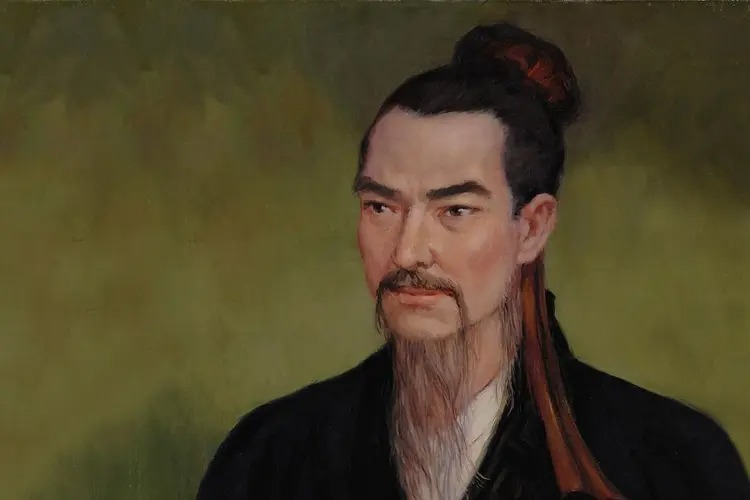
Source: bitterwinter.org 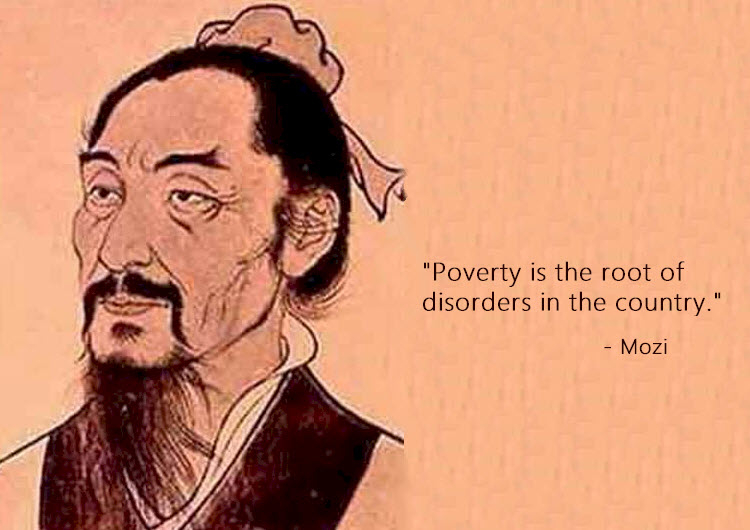
Source: tanguay.info -
Sun Tzu can be described as a man with many positions and or titles. He was a martial arts strategist, a writer, a general, and a great thinker who lived during the Eastern Zhou period in Ancient China. Sun Tzu is generally recognized and celebrated as the writer or author of the book "The Art of War", a truly powerful military strategy and it has a reasonable influence on both sides, that is, military planning in East and West Asia. Sun Tzu's lifelong work governs areas such as tactics and strategy; delay; how to make the best use of government representation and resources; achievements of the partnership; maintaining existing partnerships or alliances; recruiting and deploying spies or agents; it's time to surrender to the enemy and more. Simply put, his life work includes everything related to the art of war.
This masterpiece has been seriously recognized as a complete guide or aid to the methods and strategies of war due to the many generals and intellectuals who have worked on it since its transmitted and summarized in other languages. Yes, it is related to the battle plans used in ancient China but it can still be applied in today's world. What's more, everyone wishes they had a tour guide or some book that can help guide the steps in various life situations, which makes Sun Tzu worthy of lying down in the list of the most famous people in ancient China.
- Born and died: 544 - 496 BCE
- Known as: Military general, strategist, philosopher, writer
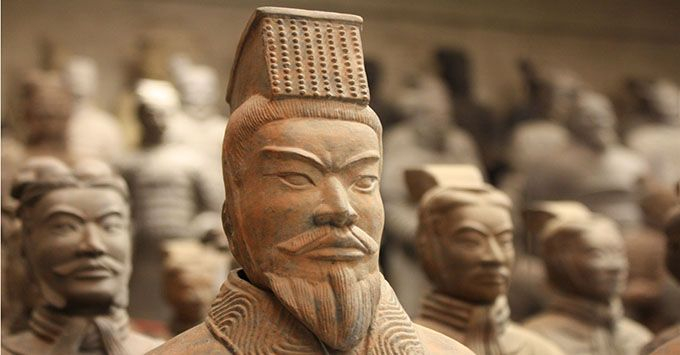
Source: businessinsider.com 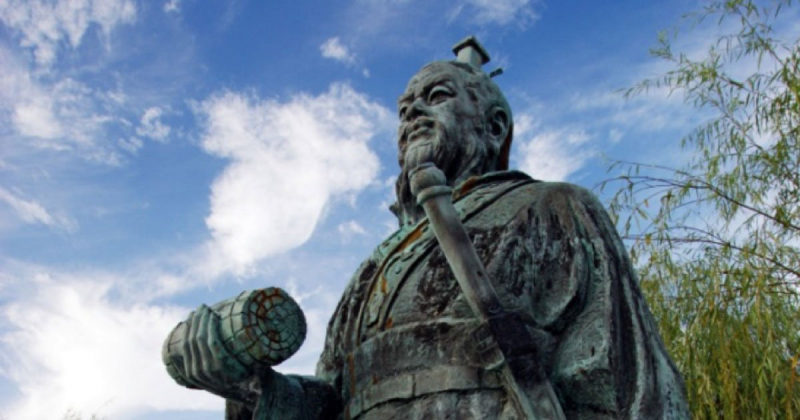
Source: ancient-origins.net -
Confucius is a man whose name and legacy cannot be overlooked in the list of the most famous people in ancient China. He was born in the ninth month of the year, September 28, 551 BC. Born into a middle-class family, and later suffered terrible poverty due to the death of his father at the age of three. He is married to his wife, Qiguan, and they have 3 children to be exact, a son and two daughters. Unfortunately, he lost one of his daughters at a very young age. He actually served in the fields and was a bookkeeper. With that, he became a teacher, teaching a relatively small group of devoted students or disciples. All of this laid the groundwork for him to become a respected sage or philosopher and thinker.
Confucius has influenced so many lives, not only in China but also in neighboring countries like Japan, Korea, Vietnam, etc., through his teachings. All are deeply rooted in his teachings. For the sake of simplicity, his maxims and ideology/philosophy are often referred to as Confucianism, which formed the origin of the worldwide famous anthology called Analects of Confucius. He often made his mark on history through his teachings and ideology. He also contributed to education as he founded and promoted the private school system, where everyone, regardless of class or status, is welcome. He himself was constantly learning and he taught his followers the six arts on which their education was formed; mathematics, calligraphy, music, archery, chariot driving, and rituals last but not least. He did this as a countermeasure against the saying or belief common in the Zhou dynasty that education was only open to people of the higher classes.
- Born and died: 551 – 479 BCE
- Known as: Philosopher and politician
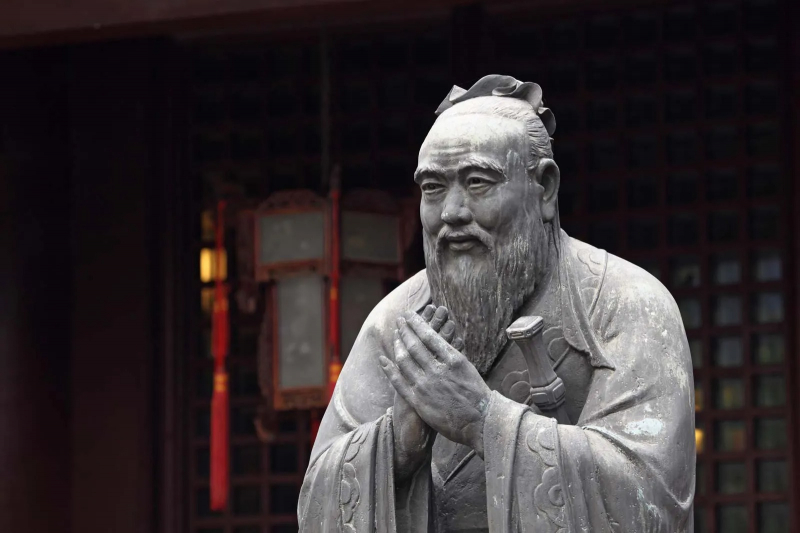
Source: chinahighlights.com 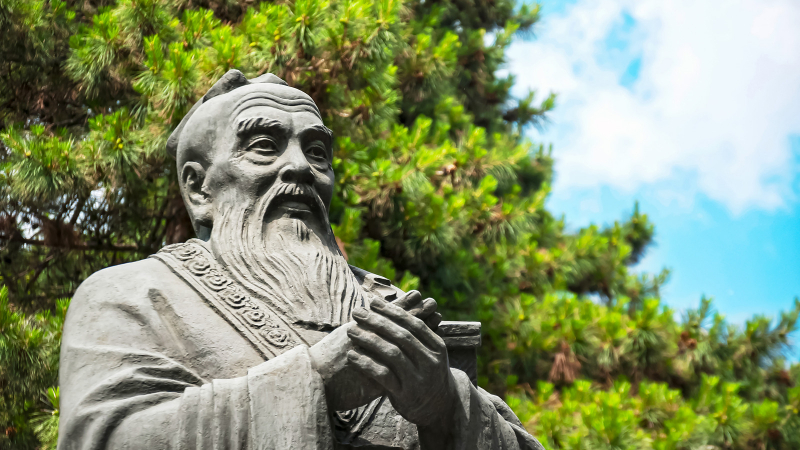
Source: britannica.com -
Du Fu lived through the violent fall of China's glorious Tang dynasty. He was poor, and sometimes nearly starved to death. Du Fu is another prominent historical figure on the list of the most famous people in ancient China, a country devoted to poetry. Unlike elder and friend Li Bai, who lived like a superstar poet showered with honors for his genius, Du Fu was not appreciated in life for his "extremely bold writing style and bizarre" and constant criticism of the regime. But with time, his work eventually allowed him to be introduced to Western readers as the "Shakespeare, or Hugo of China".
The political reflections in Du Fu's works are based on emotion rather than calculation. He wished people were less selfish and fulfilled their duties. However, because one could not disagree with his views, the facts so convincingly expressed in his poetry made him a central figure in Chinese epics. Du Fu's love for himself and for others is only part of the themes of his poetry: he also composed many poems on subjects that were previously considered unsuitable for expression in poetry. Although he composed all kinds of poetry, Du Fu is most famous for his near-poetry, a style of poetry that has many constraints on form and the number of words in a sentence. About two-thirds of his 1,500 extant works are in this form, and he is generally considered to be the epitome of the genre. His best poems in the genre use parallelism to add expressive content instead of just a conventional technical regulation.
- Born and died: 712–770
- Known as: Poet and politician
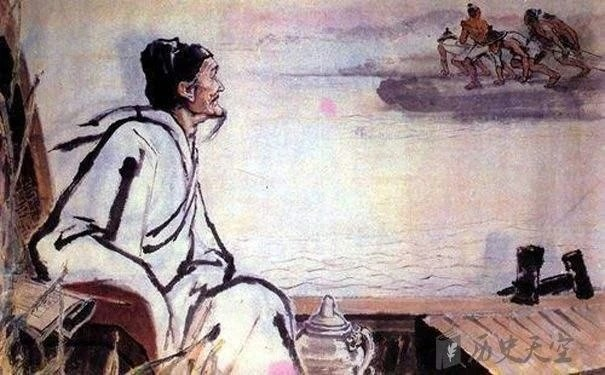
Source: china.org.cn 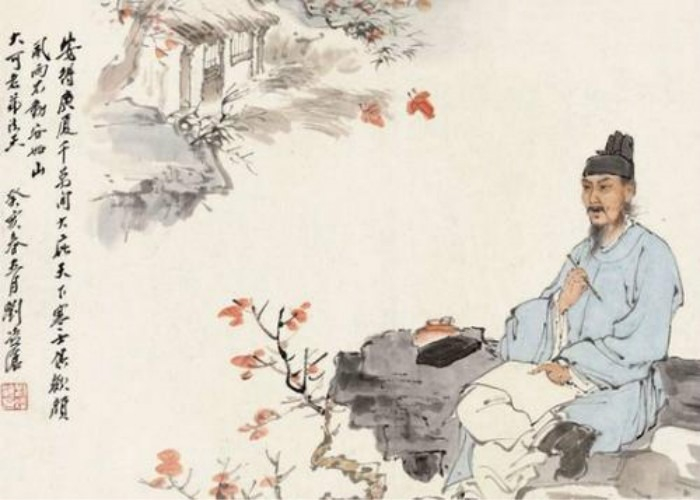
Source: chinahighlights.com









